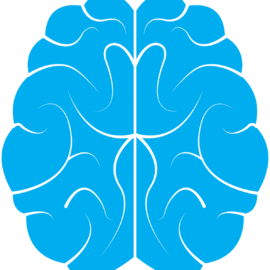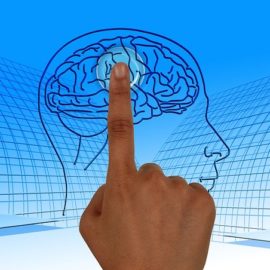CTE, or Chronic Traumatic Encephalopathy, has been getting a lot of attention in recent years. While doctors and researchers had long hypothesized that chronic, repetitive head trauma could cause the long-term brain damage seen in CTE, the first real evidence of the disease was published in 2005 by Dr. Bennet Omalu, a forensic pathologist. By examining the brain of former Pittsburgh Steeler Mike Webster, Dr. Omalu discovered abnormalities and coined the term “Chronic Traumatic Encephalopathy” to describe the condition.
Unfortunately, this CTE “scan” was performed after Webster’s death. At the present time, no scan can diagnose CTE in living individuals. After death, a definitive diagnosis of CTE can be made through an autopsy in which the brain is examined for visible signs of CTE. However, innovative research is underway to establish methods of detecting CTE during life. This research will advance methods of prediction, prevention, and treatment.
What is CTE (Chronic Traumatic Encephalopathy)?
Chronic Traumatic Encephalopathy is a brain condition linked to repeated head trauma. Most concerning, this damage to the brain isn’t only caused by high impact. In fact, a subconcussive blow can create damage without immediate symptoms. Over time, these smaller blows to the head lead to a buildup of tau proteins in brain tissue. Tau buildup is not unique to CTE—it is also associated with dementia and Alzheimer’s. But in the case of CTE, researchers have noticed a unique buildup pattern not present in other tau-related diseases.
As CTE develops as a result of tau buildup, brain cells die, causing moderate to severe symptoms (see below). A PET scan can identify patterns of tau proteins in the brain but cannot predict if or when someone will develop CTE. Additionally, it does not determine if a person has CTE.
Those most at risk for CTE include:
- Football players, with the highest recorded incidences
- Military
- Hockey players
- Boxers
Symptoms of CTE
Symptoms of CTE do not usually occur for years or even decades after the injuries. These symptoms include irritability, erratic behavior, and depression. Additionally, some may experience rage and memory loss.
Current Research for a CTE Scan
Presently, the National Institutes of Health is conducting the largest study for developing a CTE scan. As cited in their ongoing National DIAGNOSE-CTE Research Project, “There is thus an urgent need to develop accurate methods for detecting and diagnosing CTE during life so that effective interventions for prevention and treatment can be developed.”
According to the National DIAGNOSE-CTE Research Project’s lead investigator, Dr. Robert Stern of Boston University, “Me and 50 co-researchers around the world are conducting further research, the DIAGNOSE CTE project, and our primary goal is to develop and refine methods of diagnosing CTE during life.” As he told NBC News, “We plan to examine the course of the disease over a three-year period and to assess risk factors including genetics and exposures to repetitive head injuries.” When finished, this data will be shared with researchers around the world.
How Brain Fitness Centers of Florida Can Help with CTE
In addition to their not yet being a CTE scan, there is no cure for CTE. Certain medications can treat symptoms (including behavioral); additionally, cognitive training and rehabilitation may help lessen symptoms.
Brain Fitness Centers of Florida can help you “exercise” your brain to strengthen certain functions that may be affected by CTE. Through a series of carefully structured cognitive training models, your awareness, attention to detail, memory, and clarity can improve.
If you have had a history of repetitive head trauma and suspect you may be experiencing symptoms of CTE, talk to your doctor first. You can also call us to schedule a free 10-minute memory screening to assess your current cognitive functions. During the test, we’ll determine mental acuity, memory speed, and thought flexibility.
Contact us online to schedule an appointment or call us at 727-608-7378


